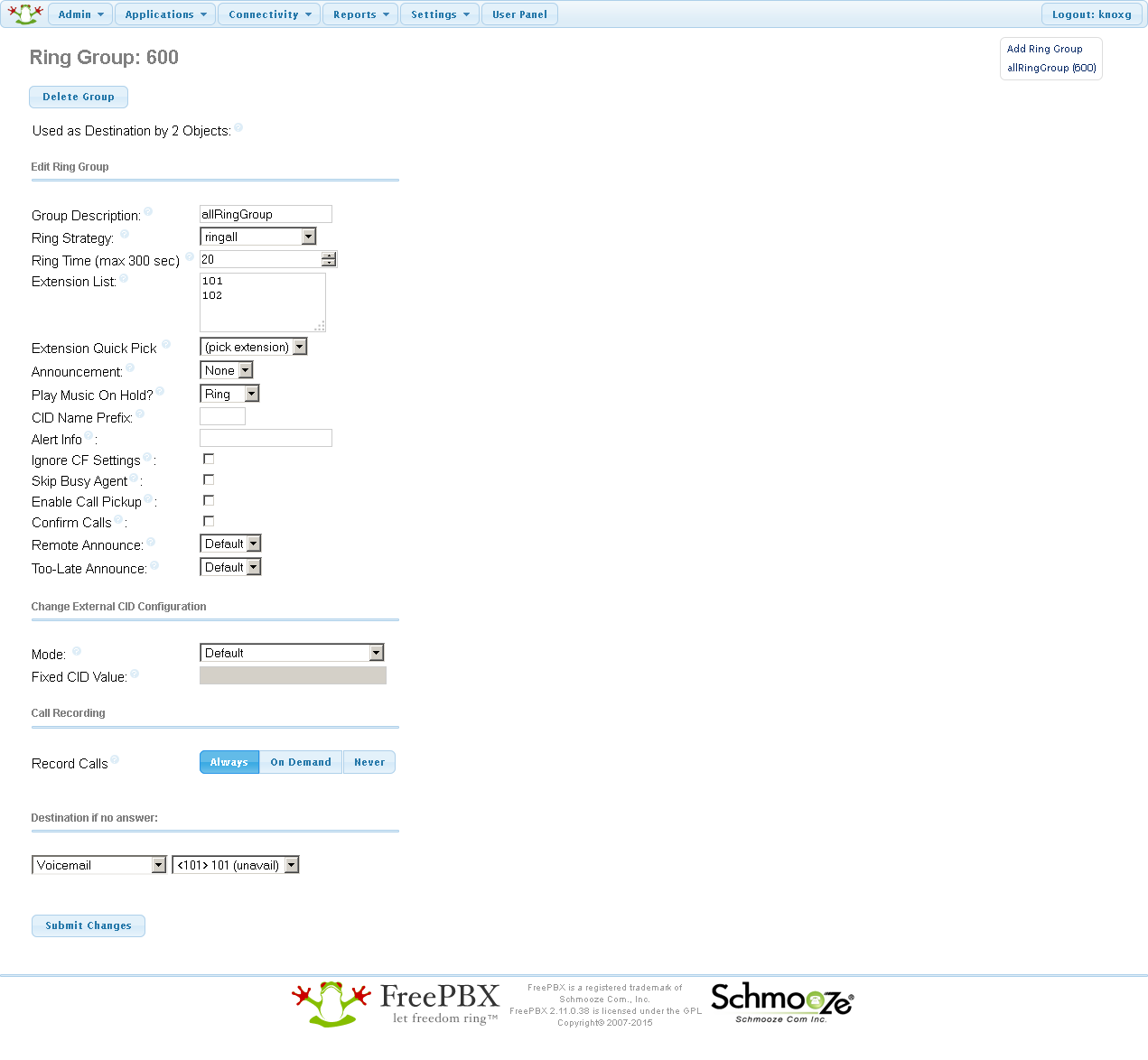
It is often used to efficiently distribute calls to specific. Because you can set an optional destination to send calls to if nobody picks up after a certain amount of time, the Ring Groups module is also related to any module that can be used as a destination for a call. Ring groups are the groups of extensions that ring at the same when there is an incoming call. Because the Ring Groups module is used to ring extensions, it is also related to the Extensions module. How is the Ring Groups module related to the other modules?īecause the Ring Groups module creates a destination to which you can route calls, the Ring Groups module is related to any module that can route calls to a destination, including the Inbound Routes module, the IVR module, the Time Conditions module, etc. You could also set the ring group as a destination an an IVR, so that when a caller presses 1, for example, a group of phones will ring. You could also set the ring group as a destination in an inbound route, so that calls to the DID (i.e., a phone number) specified in the inbound route will cause all of the ring group's extensions to ring. It also creates a destination to which you can send calls that will ring those multiple extensions.įor example, you could create a ring group that will allow your local phones to dial 600, and then all (or some) of the phones in the office will ring. The Ring Groups module is used to create a single extension number that your users can dial in order to ring multiple extensions at the same time.


Summary In thischapter,welearnedhow to create users and endpoints in. THIS WIKI HAS BEEN UPDATED FOR VERSION 13 OF YOUR PBX GUI What is the Ring Groups module used for? Thisoption can be an extension, ring group, queue, or evenan external telephone number.


 0 kommentar(er)
0 kommentar(er)
